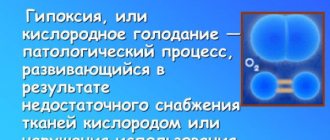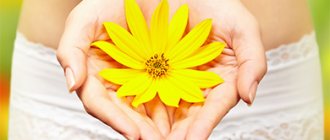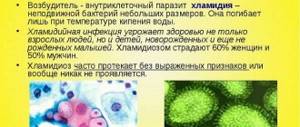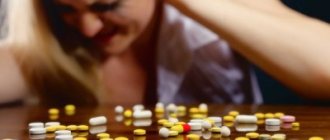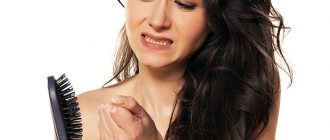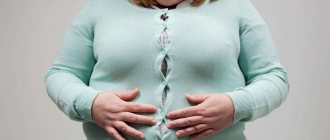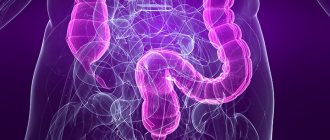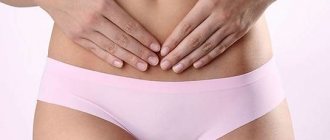What is nocturia
Nocturia (also known as nocturia, nocturnal pollakiuria) is a pathologically frequent urge to urinate at night. The bladder in a horizontal position can accumulate 2 times more urine than during the day, so even after drinking tea in the evening, you can sleep quite peacefully until the morning.
Normally, young men excrete 14% of the daily volume of urine at night, and men after 60 – 35%. A condition in which trips to the toilet during sleep are caused by an increase in urine volume is called nocturnal polyuria.
Nocturia can be temporary or permanent. Temporary is provoked by taking diuretics and some other drugs, drinking large amounts of liquid. Permanent is a consequence of pathologies (infectious, neurogenic and mechanical damage to the walls of the bladder).
How often do you urinate at night?
Preventive recommendations
Considering the wide range of possible negative factors, the prevention of frequent urination in the fair sex includes a lot of measures:
- promptly treat pathologies of the excretory and reproductive systems;
- take care of your health, if unpleasant symptoms appear, visit a doctor, do not allow various ailments to become chronic;
- An important role is played by proper drinking regimen (about 1.5 liters of water per day), adherence to the diet (eating foods that do not irritate the urinary tract and kidneys).
Frequent urge to defecate indicates various pathologies. If trouble occurs, visit a doctor and start therapy (if necessary).
Frequent urination in women can occur due to various reasons, which can be divided into two categories: increased urine production and problems with urination or incontinence. The following video contains effective folk recipes for treating troubles:
Causes of frequent night urination
The main causes of nocturia are problems with the bladder and prostate itself, as well as hormonal imbalance. In the first case, nocturia is provoked by infections, mechanical damage due to surgical interventions, and tumors. In the second, night urination becomes more frequent due to a lack of a hormone that inhibits urine production.
Without pain
Frequent, painless urination is usually not alarming until it becomes exhausting. The reason for frequent rises at night may be the development of diabetes insipidus, in which the body's water balance is disturbed (the kidneys are not able to properly concentrate urine). Two hormones are responsible for its maintenance: antidiuretic AVP (vasopressin), synthesized by the hypothalamus of the brain, and diuretic ANG, released by muscle cells in response to increased blood volume. Impaired production of AVP or its insensitivity by the kidneys leads to an increase in urine volume and sleep disturbances.
Additional symptoms:
- Increased thirst;
- Dry mouth;
- Decreased appetite;
- Almost colorless urine.
Increased levels of diuretic hormone are recorded in men suffering from sleep apnea (short-term stops in breathing).
Painless night urination can be caused by neurological disorders, including those arising from parkinsonism, tumors and injuries of the brain and spinal cord, and damage to the pelvic nerves during surgical interventions. The bladder begins to periodically contract involuntarily, causing an inappropriate urge to urinate (OAB syndrome). Bladder dysfunction often occurs in people who are alcoholics or drug users (toxic nerve damage).
With OAB syndrome, uncontrolled contractions of the muscle that pushes urine out, the detrusor, occur.
Frequent urination at night can be caused by heart failure. During the day, the heart works worse than at night at rest. As a result, during sleep, metabolic processes accelerate, the kidneys begin to excrete urine more actively, thus compensating for daytime delays. Additional signs:
- Swelling, which is especially noticeable in the legs in the evening.
- Periodic shortness of breath.
- Tachycardia.
In men over 50 years of age, frequent small amounts of urination at night may be associated with a decrease in bladder capacity. This occurs against the background of prostate growth (hyperplasia), when the gland begins to put pressure on the bladder in a lying position. There may be no pain.
Urologist-andrologist Nikolai Konstantinovich Soloviev talks about the causes and symptoms of frequent night urination in men.
The natural increase in urination at night in men after 60 may be caused by age-related androgen deficiency. The reason is a disruption in the production of nitric oxide, as a result of which the contractility of blood vessels decreases and blood circulation in the muscles of the bladder is disrupted. Against this background, OAB syndrome often develops.
Nocturnal polyuria in the elderly may develop due to a disruption in the circadian rhythm of vasopressin production. Normally, by night its level should increase; if there is a failure, this does not happen.
With pain
Frequent night urination with pain, as a rule, is provoked by infections of the genitourinary tract, which cause cystitis, pyelonephritis, prostatitis, urethritis. Additional symptoms may include pain in the groin and lower abdomen. With prostatitis, it radiates to the rectum, and with renal pathologies - to the lower back. Urethritis and acute prostatitis are accompanied by discharge from the urethra; blood may be visible in urine and semen.
With prostatitis at night, the volume of the prostate gland increases due to deterioration in the outflow of blood and lymph, and pressure on the urethra and bladder neck increases. As a result of tissue compression, the concentration of receptors increases, and the urge to urinate intensifies. There may be no pain.
Painful, frequent urination (and even incontinence) day and night is common after prostatectomy (removal of the prostate). The symptom is caused by a violation of the nervous regulation of the bladder neck and urethral tissue. In the first weeks, blood periodically appears in the urine. Urination is completely normalized after six months. For some men, this process drags on for a year.
Associated symptoms
In addition to frequent urination, women may experience:
- general weakness, dehydration;
- headache, dizziness;
- As the formations grow and illnesses progress to an advanced form, pain, vomiting, and hematuria may appear.
Learn about the causes of pyeloectasia of the left kidney and methods of treating the disease.
How to prepare for an MRI of the kidneys and how is the procedure performed? Read the answer in this article.
Go to https://vseopochkah.com/mochevoj/mocheispuskanie/uprazhneniya-kegelya.html and read about how to properly perform Kegel exercises for urinary incontinence in women.
Diagnostics
If you experience increased frequency of urination at night, you should consult a urologist. To make the first consultation the most informative, it is recommended to fill out a urination diary within 3 days before it (a sample can be downloaded from the link). It is the main diagnostic tool for nocturia.
Depending on the information contained in the diary, the doctor prescribes laboratory tests:
- General and biochemical analysis of blood and urine;
- Hormone analysis;
Normal hormone levels in men
- Determination of sugar level;
- PSA test;
- A smear from the urethral canal, prostate secretion to detect infections.
Among the imaging methods, TRUS of the prostate, ultrasound of the bladder and kidneys are informative. If diabetes insipidus is suspected, an MRI of the brain is prescribed.
Treatment
The direction of treatment for frequent urination depends on the diagnostic results. First-line drugs for prostatitis are fluoroquinolones (Levofloxacin) and cephalosporins (Cefotaxime, Ceftriaxone). To relieve pain, non-steroidal anti-inflammatory drugs (Ibuprofen, Ketonol) are prescribed. In addition to tablets, rectal anti-inflammatory suppositories (Vitaprost) are used.
Read more about the use of Vitaprost for prostatitis.
For cystitis, Monural and nitrofurans (Furamag, Furagin) are prescribed. Herbal medicines are a good auxiliary remedy: paste “Fitolysin”, “Urolesan”, “Uronorm” (more information about drugs for the treatment of cystitis).
Phytolysin is a combined herbal preparation that has a diuretic, anti-inflammatory, and antispasmodic effect. Price from 433 rubles
Alpha-1-blockers (Segetis, Kardura) will help relieve the symptoms of hyperplasia. In case of severe urination problems, surgical methods are used.
For OAB syndrome, M-anticholinergics (Spazmex, Driptan, Urotol), tricyclic antidepressants (Imipramine), alpha-1-adrenergic receptor blockers, vasopressin analogues (Desmopressin) are prescribed.
Drugs used to treat OAB
In older and elderly men, the possibilities of drug and surgical treatment are limited by the increased risk of adverse reactions and the presence of chronic diseases of the cardiovascular system. They try to replace surgical interventions with conservative therapy, including hormone replacement.
At home
At home, drug treatment for nocturia can be supplemented with exercises to strengthen the pelvic floor muscles. This is especially true for the elderly. Herbal decoctions help relieve inflammation and alleviate the symptoms of cystitis and urethritis:
- Chamomile: 2 tbsp. spoons, pour a glass of boiling water, leave in a thermos for half an hour, drink half a glass three times a day before meals.
- Black poplar buds: 2 tbsp. spoons of crushed raw materials, pour 500 ml of boiling water, leave for 2 hours. Take in the same way as chamomile.
- Bearberry: pour 10 g into a glass of water, boil for 15 minutes, leave until cool, drink throughout the day before meals.
- St. John's wort: 1 tbsp. Pour 200 ml of boiling water over a spoonful of herbs and leave for 20 minutes. Drink a quarter glass three times a day.
St. John's wort infusion
These remedies will help get rid of irritation of the mucous membranes of the bladder and urethra, as a result of which the urge to urinate is normalized.
For neurogenic disorders, you can drink mint tea (infusion of peppermint, lemon balm). St. John's wort, valerian, and linden are good natural antidepressants.
What to do if you have frequent urination
Given the large number of different causes of this condition, treatment for frequent urination should be prescribed by a doctor:
- cystitis, urethritis and pyelonephritis are treated with antibiotics, less often with antiviral agents;
- diabetes insipidus is treated with synthetic vasopressin;
- cystocele – surgically;
- for diabetes mellitus, either insulin or tableted hypoglycemic drugs are prescribed;
- for urolithiasis, the treatment of choice is stone crushing with laser or ultrasound;
- adenoma and prostate cancer are treated with surgery, only the volume of interventions will be different.
Advice! Do not limit your drinking regime under any circumstances! The body must receive at least 2 liters of fluid per day for its normal functioning. To get rid of such an unpleasant symptom as frequent urination, at home you can only introduce a diet, limiting salty, smoked foods and alcohol.
>
Prevention
Basic measures to prevent night urination:
- Do not drink beer, coffee, green tea, strong black tea in the evenings, do not eat spicy foods.
- If you are prone to edema, you should try to drive it away before going to bed: drink diuretics in the first half of the day, do vascular exercises, lie down in the evening with your legs elevated, do the birch tree exercise.
- With prostatitis, it is necessary to maintain normal metabolism in the gland. Prostate massage and rectal suppositories with peptides (“Prostatilen”) are suitable for this.
- Bladder and urethral infections need to be diagnosed and treated promptly.
To prevent neurogenic urination disorders, it is advisable to give up smoking and alcohol abuse.
The norm for going to the toilet in small ways
Before considering the causes of frequent urination, you need to evaluate whether we are really talking about frequent urination. To do this, familiarize yourself with the physiological norms:
Frequency of urination per day
Daily urine volume
Average volume of urine per 1 urination
750-1600 (75% of the liquid drunk per day)
The same amount increases during pregnancy
The same amount grows during pregnancy
Should be 2-2.5 ml/kg/hour, which is divided by the number of urinations
These are the values that should be observed under the following conditions:
- human body temperature – 36.2-36.9°C;
- ambient temperature – less than 30°C;
- 30-40 ml/kg of body weight was drunk (this figure will be different for children under one year of age);
- did not use diuretics in tablets, as well as rosehip decoction, coffee, green tea in large quantities;
- no shortness of breath and/or rapid breathing.
At the same time, a person should not urinate at night, a maximum of 1 time, and the volume of urine excreted should not exceed 200-300 ml in an adult.
Advice! If your or your child’s numbers are higher than the above norm, then in order to understand the etiology of this condition, you need to measure the total volume of daily urine, and also pay attention to the accompanying symptoms. Further we will consider frequent urge to go to the toilet in conjunction with these signs.

